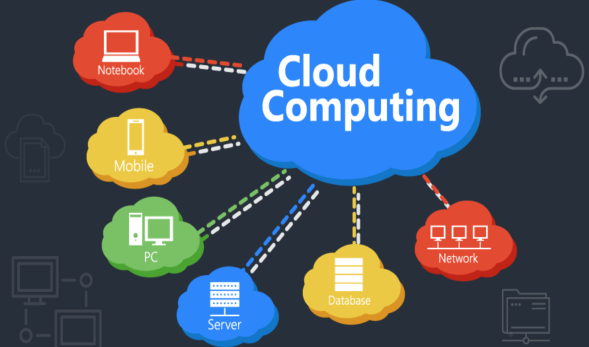What degree is required for cloud computing?

Cloud refers to the internet, which is a digitally expanding world. Cloud computing is the provision of services like storage, management, communication, and information sharing through the internet. These features can be accessed off-set, without the need to install any major hardware assets, or local storage like hard-drives, computers, and so forth. You can use virtual machines and online servers without the need for infrastructure, systems or applications. Cloud computing improves the processing power of your computer and offers many features, including software programs, databases, email servers, and networking.
Cloud computing can be divided into two subcategories: one is public cloud, the other private cloud. Public cloud services allow unlimited internet access, while private cloud services can only be accessed by a limited number of people. They offer hosted services and are network-oriented. A hybrid cloud is another type of cloud. It is a combination of elements from both public and private clouds. One of the three hybrid cloud types is more flexible, secure, and optimizes user infrastructure.
Cloud computing offers three main services depending on the number of services. These are SaaS (Software as a Service), PaaS (Platform as A Service) and IaaS (Infrastructure As a Service). There are many job roles in cloud computing, each with its own importance.
Cloud computing job roles
Cloud Architect A person who has been certified and is skilled in the design of a cloud infrastructure for an entire organization or enterprise is a Cloud Architect. Cloud Architects use a complex and well-rounded approach to integrate cloud-based systems. According to Glassdoor, the average salary for a Cloud Architect is Rs20,316,658 per annum. Cloud Architect certification can be obtained in Bangalore.
Cloud Engineer: A cloud engineer is someone who follows in the footsteps of a cloud administrator. The cloud engineer assists in the development of cloud architecture or sets up all the functionalities. These functionalities include load balancing, pipeline setup, and any blueprint provided by cloud architect. Each technical task is his responsibility. According to Glassdoor, the average salary for a cloud engineer in India is Rs 5,54,936
Cloud Automation Engineer The Cloud Automation Engineer is also called a DevOps Engineer. They are responsible to deploy different tasks continuously and set up routes for these tasks. Every time you follow the suggested routes, a new build-up will be triggered. Future bugs are used to test for breaking changes. They provide support for management in scripting, coding, and software delivery operations. According to Payscale, the average salary for a Cloud Automation Engineer in India is Rs7,474,406 per annum.
Cloud Security Analyst Because the information is stored in the big data world, there is more risk of malicious attacks than data stored on local machines or computers. These observations lead us to require extremely strict security of the information stored. A cloud security analyst is responsible for analyzing all security risks and minimizing them during cloud infrastructure development. He also keeps track of any information security breaches. According to Glassdoor, the average salary for a Cloud Security Analyst in India is Rs8,21904 per year.
Many companies offer cloud computing jobs. Microsoft, Aditya Birla Group and Michael Page are some of the most prominent recruiters. The above-mentioned job profiles can vary depending on the individual’s knowledge, skills and experience. Visit Naa Songs to find out more information
Cloud Computing Courses
Cloud computing courses cover everything from structure and application to administrative programming. The course focuses on large-scale information distribution and programming techniques on the cloud to create a foundation for cloud infrastructure. Students choose to pursue this course to acquire all the knowledge and skills required for programming and computations.
Cloud computing is a career that can be started with a variety of exams. These colleges are some of the most popular in India and offer courses in cloud computing:
SRM University Chennai: This university is in the private sector and offers admission via JEE MAINS and SRMJEEE
LPU Jalandhar – It is the private sector. Admissions are made on the basis JEE MAINS and LPU NEST.
Chandigarh University: You can enroll through CUCET ( Chandigarh University).
Jain University, Bangalore School of Engineering and Technology: Admission is via JEE MAINS and COMEDK UGET. Uni-Gauge-E and JET.
HITS Chennai: You can take the HITSEEE exam to be admitted.
Integral University, Lucknow: This university admits students through JEE MAINS and IUET.
Innobuzz (distance-learning)
Multiple centers of the Indian Institute of Job Training (IIJT),
Indian Institute of Hardware Technology, Bangalore
IBM Professional Certification Program (testing via Prometric).
NIIT, multiple centres
Aptech, Computer education (multiple centers)
Conclusion
You can take a course on cloud computing after you have completed a bachelor’s degree in Engineering (computer technology or engineering), Bachelor of Computer Applications, Bachelor of Science (B.Sc), Bachelor of Science or Master of Science in IT/Computer science. After acquiring the relevant qualifications, you can work as a cloud Architect, DevOps Engineer or security specialist. Cloud computing courses can be taken at various levels. They can vary from one institute to the next. There are many diploma and certification courses available. Based on your time and other resources, you may choose to pursue a certificate or diploma program. There are many courses that can help you understand the basics of cloud computing.




